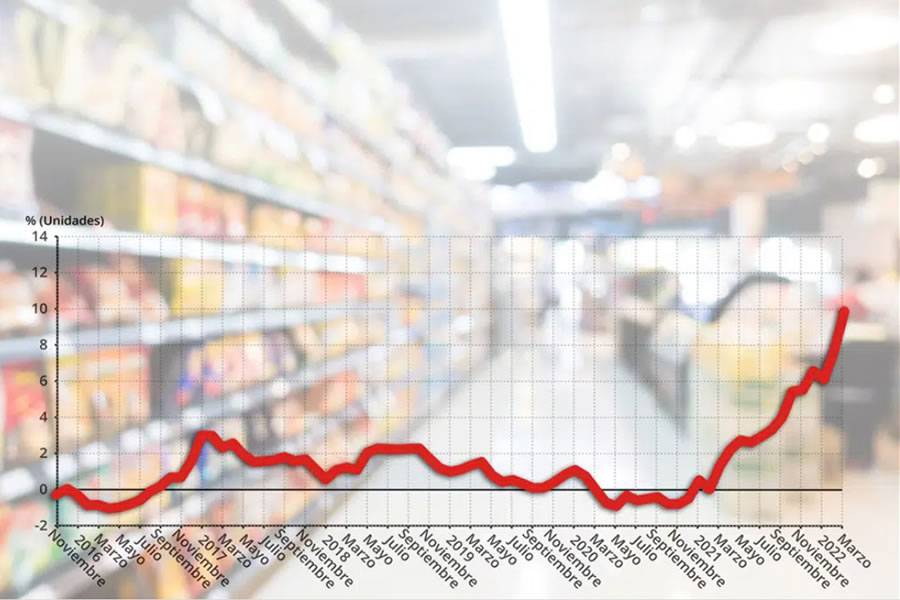Inflation reaches historical high in Spain due to the war in Ukraine
- 31-03-2022
- Business
- Canarian Weekly
Inflation has shot up to 9.8% in March, its highest rate in Spain for 37 years according to the INE (the National Institute of Statistics), which also includes a rise in the IPC (cost of living) of 3%, compared to the previous month, and suddenly raised its year-on-year rate by more than two points.
In actual fact, this is the 15th month in a row that the IPC has increased, according to yesterday’s figures, although the full impact of the rise in prices will not be known until well into April.
According to the INE, the increase in the index is due to the rise in the prices of electricity, fuel, food, and non-alcoholic beverages, which are higher in March this year than in the same month of 2021.
It also includes an estimate of core inflation (excluding unprocessed food and energy products), which increased in March to 3.4%, its highest value since September 2008.
In addition, the Harmonized Consumer Price Index (IPCA) placed its interannual rate at 9.8%, more than two points above that of February. While the advance indicator of the IPCA advanced by 3.9% at a monthly rate.
Economists have explained that 73% of this increase is due to the impact of the invasion of Ukraine on the prices of energy and unprocessed food. That is why it is urgent to deploy the national response plan adopted on Tuesday, which they say "will reverse this upward trend and curb the increase in costs for companies and families, and start reducing inflation to more moderate levels in the short term".
In fact, the governor of the Bank of Spain, Pablo Hernández de Cos, warned on Tuesday that the effects of the war are going to mean "an additional increase in inflationary tensions." The key is that the conflict is generating "a kind of energy shock, and that shows in the price of electricity.”
He stated that the war affects the economy through various channels. Among them, he cited that raw materials, an area in which both Russia and Ukraine are producers, especially for energy, on which Europe is very dependent. "This greater dependence generates an increase in prices that negatively affects the economy," he explained.
10 BILLION EUROS NEEDED FOR PENSIONS:
The economists have calculated that the government's shock plan will have an impact on inflation of one percentage point, according to estimates by FUNCAS, so despite these measures, they will have to allocate a further 10 billion euros in 2023 to pay the revaluation of pensions.
The rise in prices will have an impact on the economy in the coming quarters, although technically the feared scenario of stagflation will not be reached if things do not worsen internationally. According to FUNCAS, the Spanish economy will only grow by 1.1% between now and the end of the year, with some quarters bordering on negative growth.
Meanwhile, inflation will continue to be very high and will close the year with an average value of 6.8%. Taking into account that pensions will have to be reviewed in November, they calculate that next year it will be necessary to allocate an extra 10 billion euros to pay them.
CANARY ISLANDS LOWERS GDP GROWTH FORECASTS TO 4.1%:
Yesterday, the Canary Islands Government announced the update, after the invasion of Ukraine, of its monitoring report on the economic impact of Covid, which places the year-end forecasts for GDP growth at 6.3% and an increase in employment of 23,900 people.
However, these forecasts lower the expected GDP growth to 4.1% and the increase in employed persons to 9,200 in a more adverse scenario, which would respond to the situation that could be created if the inflationary escalation unleashed by this armed conflict continues, as explained by the Regional Deputy Minister of the Economy, Blas Acosta.



























































